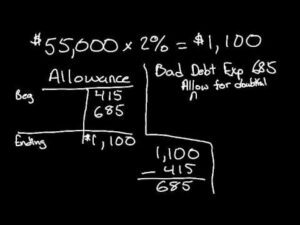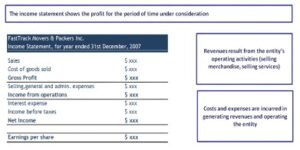
This is because QuickBooks offers an add-on specifically for time tracking, starting at $20 per month (plus $8 per user), while Xero bundles time tracking with its main service. As a QuickBooks ProAdvisor, Mark has extensive knowledge of QuickBooks products, allowing him to create valuable content that educates businesses on maximizing the benefits of the software. The software must have features that allow users to set sales tax rates, apply them to invoices, and enable users to pay sales tax liability.
Basic inventory tracking in all plans
If you only have Self Assessment to worry about, you can choose a Self-Employed or Simple Start plan for the very low price of £4-6 a month. QuickBooks bills itself as ‘smart, simply accounting software – with no commitment’⁴. It’s particularly good at helping businesses to streamline repetitive tasks, and manage accounting processes from just their smartphone.
Xero vs QuickBooks Online
Some also explained that QuickBooks offers excellent expense-tracking features. We agree with this, and one of the features we like is that QuickBooks remembers the categories of items that have been entered previously. Additionally, you can create explicit rules to help QuickBooks correctly classify transactions automatically. With a free plan and paid plans starting at $20 per month, Zoho Books has plans for most budgets. Higher-tier plans include unique features, like workflow rules, on top of tools that help you measure project profitability.
The Bottom Line: Your Business, Your Choice
Yes, you can use Xero to track inventory, and the feature is available in all plans. In evaluating pricing, we considered the billing cycle (monthly or annual) and the number of users. Note that fixed asset accounting isn’t part of our case study, so there are no scores.
- With a free plan and paid plans starting at $20 per month, Zoho Books has plans for most budgets.
- However, QuickBooks offers a more seamless experience for two big reasons.
- Xero’s raft of expensing abilities allows you to scan receipts to record and track expense claims, slotting each expense into the best category for a report.
- Xero also allows you to create a project or job, track time to add to it and add details to invoices when you’re ready to bill clients.
Dashboard and Reporting
Whether Xero or QuickBooks Online is right for you depends on the specific features you need and how much you can afford to pay. Xero is more affordable than QuickBooks Online, allows you to add an unlimited number of users without additional costs, and offers inventory management and fixed asset accounting in all its plans. QuickBooks, on the other completed contract method ccm definition hand, has generally more developed features, such as bank reconciliation without bank feeds, makes it easy to find bookkeeping support, and has live customer support. Ironically, we don’t recommend this plan to freelancers due to its lack of tools, even though we do recommend QuickBooks as the best accounting software for the self-employed.

FreshBooks doesn’t have native functionality to integrate with Xero. However, you may be able to use a third-party app, such as Zapier, to connect the two. Understanding how these platforms are perceived by professionals and users can provide valuable insights. In today’s interconnected business world, the ability to integrate with other software is crucial.
However, since this function has the potential to alter the Mapping’s Consistency and Reliability, you’ll want to utilize it with caution. When you’re Recording Transactions in Xero, one advantage is that if the Transaction involves a Product or Service that you provide, you may transfer the Transaction to any account. It’s easy to initiate a new Transaction and enter it from these areas, all you have to do is go to the “Sales” area, where you can input and manage all Sales Transactions. When you connect your Xero Account with your bank to download Transactions, you must set up the correct Starting Balance according to the bank.
NerdWallet’s accounting software ratings favor products that are easy to use, reasonably priced, have a robust feature set and can grow with your business. The best accounting software received top marks when evaluated across 10 categories and more than 30 subcategories. If you can’t justify the $90-per-month QuickBooks Online Plus plan, you won’t get inventory management, because QuickBooks Online’s lower-tier plans don’t come with it. This could be a real shortcoming for small online retail businesses, for instance, that need to keep track of their products and the materials used to make them.
Xero is a better solution for large and growing companies that don’t want a cap on the number of users needing access to the software. On the other hand, Quickbooks is a favorite small business accounting software for companies that need to be able to outsource their bookkeeping to a hired accountant. Xero also offers two stand-alone apps — Xero Expenses and Xero Projects — for users on its Established plan. These apps allow you to capture photos for receipts, submit expense reports, track time, and attach billable expenses and time to individual projects. QuickBooks can also track your mileage reliably and automatically using a GPS-enabled smartphone app.
It also lets users keep a mileage log according to the IRS’s requirements. Small to medium-sized businesses, eCommerce businesses that needs foreign transactions. Companies that deal with multiple currencies and need to add employee time in the invoice. While both are very similar, these two products stocks vs bonds: 4 key differences and how to choose in 2023 have exclusive benefits that set them apart. In this guide, we will explore the key differences and declare our respective winners in each category. Plus, Xero staffers can call people back to discuss their cases over the phone, giving you that phone support you need, albeit in a roundabout way.

A/P features include creating vendors and bills, recording purchase orders and converting them to bills, creating service items, and recording full or partial bill payments. It offers plenty of customization options, which can be a great deal for those wanting to present and maintain a professional brand image. On the other hand, Xero lets you add your company a quick guide to understand invoice payment terms logo and edit fields, but you can’t change the invoice colors. These ratings are meant to provide clarity in the decision-making process, but what’s best for your business will depend on its size, growth trajectory and which features you need most. We encourage you to research and compare multiple accounting software products before choosing one.
Every business needs a good system for its accounts, from the smallest startup to the biggest multinational − not to mention freelancers. As a result, now that you’ve gone over the intricacies of these systems, let’s take a look at the most significant distinctions for Xero vs QuickBooks Online so you can decide which is best for you. Reporting is one of the most significant Accounting Software elements for guiding Financial Strategy and Progress for your firm. As a result, when comparing Xero vs QuickBooks Online, be sure the solution you choose provides the Reporting features you require.
Furthermore, both Xero and QuickBooks provide a free Mobile App for managing your accounting on the move, as well as several Third-Party Integration options. Having said that, you’ll need to know more about each software’s capabilities in order to determine which option is best for your company. QuickBooks provides report templates for different categories, such as business overview, sales, expenses, employees, payroll, and more, to cater to various use cases. QuickBooks also accurately calculates, files, and pays payroll taxes with tax penalty protection. It also syncs with the QuickBooks Workforce app to track time for payroll. Xero allows companies to set up sales tax rates to calculate sales tax automatically.
Business.com aims to help business owners make informed decisions to support and grow their companies. We research and recommend products and services suitable for various business types, investing thousands of hours each year in this process. QuickBooks has an online portal that users with common problems can check to resolve any issues without involving customer support. It includes articles and videos, grouped by the type of QuickBooks product, and further broken down into categories such as ‘Account Management,’ ‘Taxes,’ and ‘Sales and Customers,’ among others. Video training courses, a blog, and a community forum are also available. Both services do offer an app marketplace, for both in-house mobile apps and integrations or extensions offered by third-party services.
Users need to integrate third-party applications for advanced accounting features. QuickBooks automatically calculates tax from invoices using date, location, product or service type, and customer as the base for sales tax rate. Users can access sales tax information from the Sales Tax Liability Report and get assistance from live tax experts for tax filing. QuickBooks offers a bank account reconciliation feature that lets users connect their bank accounts, PayPal, Square, and other accounts with QuickBooks to import transactions automatically. It allows users to compare transactions with bank statements and check them off one by one until the difference between them is zero.
When it comes to choosing accounting software, cost is often a deciding factor. Let’s break down the pricing structures and value propositions of both platforms. QuickBooks edges out Xero in the depth of its reporting capabilities. It offers more customization options and a wider variety of reports.